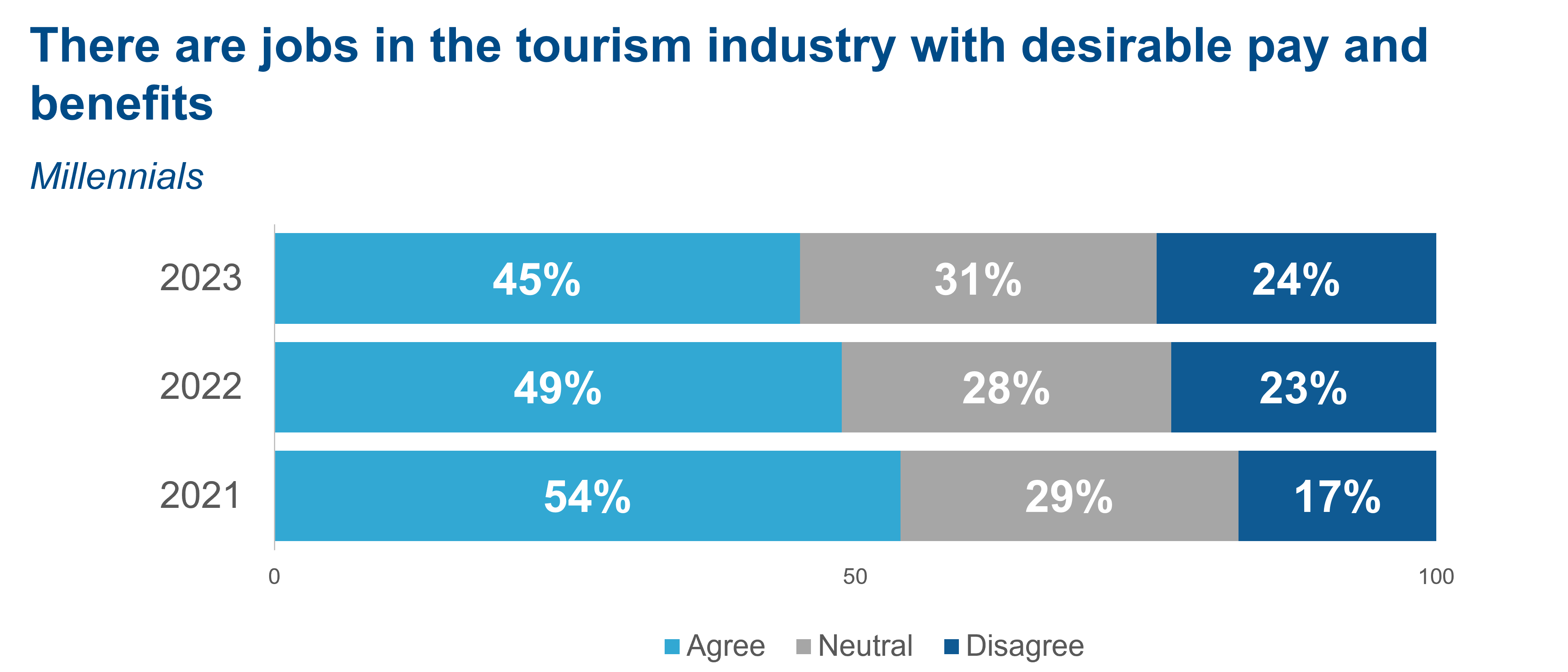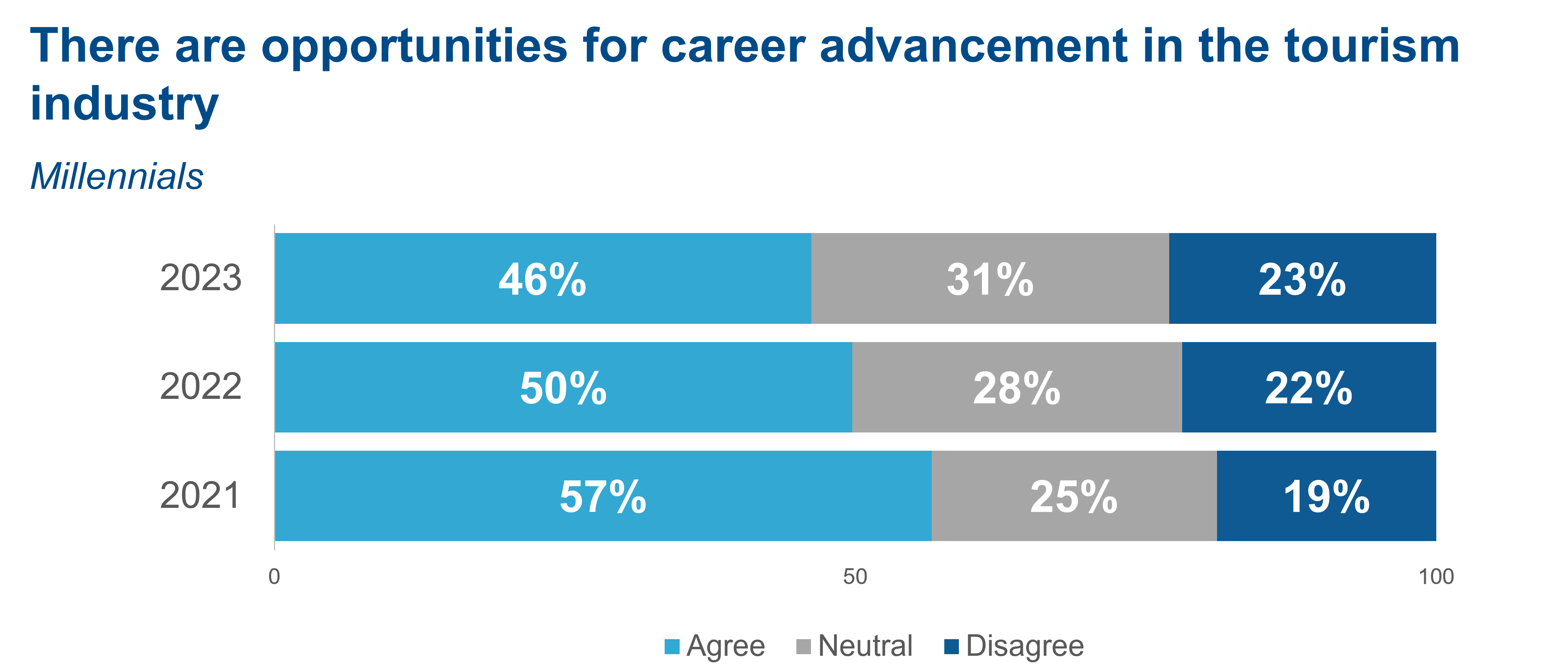
Longwoods International, in partnership with Destinations International, has conducted resident sentiment studies since 2018, tracking American sentiments towards tourism. Positive trends show that Americans recognize the value of tourism and support its development, but there's a declining interest in tourism employment among Millennials.
Longwoods International began conducting resident sentiment studies in 2018, and we have partnered with Destinations International to track Americans’ sentiments towards tourism since 2020. After four years of conducting the National Resident Sentiment study, we have identified some promising trends as well as some areas of concern. We’re excited to share these trends along with new insights from our U.S. and Canadian Resident Sentiment studies in early 2024. In the meantime, I’ll share a preview of a couple of those trends here.
First, the good news. Americans continue to recognize the value of tourism and their support for tourism remains strong. Over half of Americans agree that overall, tourism is good for their local area (61%) and, more importantly, they want tourism to be important in their local area (55%). We see similar levels of support for tourism development and growth. Six in ten Americans support tourism growth (62%) and believe tourism should be encouraged in their area (62%).
These results are positive signs that we’re making progress demonstrating that travel and destination organizations are essential, absolutely necessary, and very important to our communities.
Now, some concerning news. The tourism industry has long struggled with negative perceptions of tourism employment, which have been exacerbated by the COVID-19 pandemic. While overall sentiment towards tourism has improved since 2020, the same, unfortunately, cannot be said for tourism employment, particularly among Millennials (ages 27-42).
At the national level, nearly half of Americans agree that there are opportunities for career advancement in the tourism industry (46%), and that there are jobs in tourism with desirable pay and benefits (45%). This has stayed relatively consistent at the national level; however, we’re seeing a concerning trend when we dive deeper into Millennials’ perceptions of tourism employment. Since 2021, Millennials’ level of agreement regarding the desirability of tourism employment has steadily declined.
In 2023, 45% of Millennials agreed there are jobs in the tourism industry with desirable pay and benefits, a nine-point decline since 2021 (54%). We see a similar shift with Millennials’ perceptions of career advancement opportunities in the tourism industry. This has dropped 11 points from 57% in 2021 to less than half agreeing with this sentiment in 2023 (46%).


According to research by Deloitte, some of the top reasons Millennials choose to work for their employers include opportunities for learning/development and career progress. As Millennials continue to establish themselves in their careers and communities, we need to better communicate the many opportunities for professional growth in our industry. In fact, many of us are tangible proof of these opportunities. If we want to continue to be essential, absolutely necessary, and very important, we need to reframe what it means to be a part of this industry.
For additional insights and trends from the 2023 US and Canadian Resident Sentiment studies, be on the lookout for industry briefs from Longwoods International and Destinations International in early 2024.


